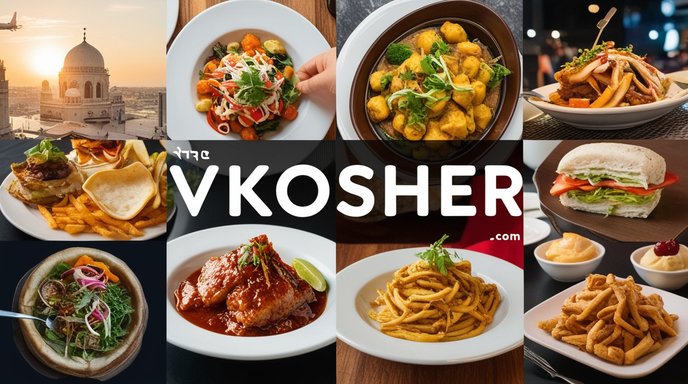Understanding Kosher Dietary Laws
Kosher dietary laws are rooted in Jewish tradition and religious texts, primarily the Torah. These laws dictate what foods are permissible (kosher) and what foods are not (non-kosher). The term "kosher" means "fit" or "proper" according to Jewish law, and its observance is a central aspect of Jewish life. Foods that do not meet these standards are considered "treif," which means "torn" or "unfit." To understand which foods are not kosher, it is essential to explore the principles that define kosher dietary laws.
The Prohibition of Certain Animals
One of the fundamental rules in kosher dietary laws is the prohibition of certain animals. The Torah provides clear guidelines on which animals are considered kosher and which are not. For land animals to be kosher, they must chew their cud and have cloven hooves. Examples of non-kosher animals include pigs, which have cloven hooves but do not chew their cud, and camels, which chew their cud but do not have cloven hooves. As a result, pork and camel meat are not kosher.
Similarly, the Torah outlines that only fish with both fins and scales are considered kosher. This rule excludes a wide range of seafood, including shellfish such as shrimp, lobster, and crab, as well as other aquatic animals like catfish and eels. These are non-kosher foods that are strictly avoided by those who observe kosher dietary laws.
The Separation of Meat and Dairy
Another critical aspect of kosher dietary laws is the separation of meat and dairy products. Jewish law prohibits the consumption of meat and dairy together in the same meal. This rule is derived from a Torah verse that instructs not to "boil a young goat in its mother's milk." Over time, this commandment has been interpreted and expanded to include a complete separation of meat and dairy in all aspects of food preparation and consumption.
As a result, any dish that combines meat and dairy is considered non-kosher. For example, a cheeseburger, which combines beef and cheese, is not kosher. Similarly, cooking meat in butter or serving it with a dairy-based sauce would render the meal non-kosher. This separation extends to the utensils and cooking equipment used for meat and dairy, which must also be kept distinct.
The Prohibition of Blood
The Torah also prohibits the consumption of blood, which is considered the life force of an animal. This prohibition is taken very seriously in kosher dietary laws. Before meat can be deemed kosher, it must undergo a process called "koshering," which involves removing all traces of blood. This is typically done through a combination of soaking, salting, and rinsing the meat. The salt draws out the blood, and the rinsing process removes any remaining residue.
Foods that contain blood or are prepared without proper koshering are non-kosher. This includes certain types of sausages, black pudding, and other dishes that may contain blood as an ingredient. In addition, some cultures consume blood directly, such as in blood soup or as a drink, which is strictly prohibited in kosher practice.
Non-Kosher Wine and Grape Products
Wine holds a special place in Jewish ritual and culture, but it must meet strict kosher standards to be permissible. For wine to be considered kosher, it must be produced entirely by observant Jews from start to finish, including the harvesting, crushing, fermenting, and bottling processes. Any contact with non-Jews during production renders the wine non-kosher. This rule also applies to other grape products, such as grape juice and vinegar.
Non-kosher wine and grape products are not permitted in kosher households. This prohibition extends to products made with non-kosher wine or grape derivatives, including certain vinegars, salad dressings, and sauces. In Jewish tradition, the significance of wine in rituals like Kiddush (sanctification) and Passover means that maintaining kosher wine standards is of utmost importance.
The Forbidden Parts of Animals
In addition to the prohibition of certain animals, kosher dietary laws also forbid the consumption of specific parts of even kosher animals. One well-known example is the prohibition against eating the sciatic nerve, also known as the gid hanasheh, from the hindquarters of animals. This prohibition is rooted in the biblical story of Jacob wrestling with an angel, during which his sciatic nerve was injured.
The removal of the sciatic nerve is a complex and time-consuming process. As a result, many kosher butchers in Western countries do not sell the hindquarters of animals, as the cost and effort involved in removing the nerve are often deemed impractical. Consequently, cuts of meat from the hindquarters, such as sirloin or filet mignon, are typically non-kosher unless the sciatic nerve has been removed.
Kosher Slaughter and Non-Kosher Methods
For meat to be considered kosher, it must come from a kosher animal and be slaughtered in a specific way according to Jewish law. This process, known as shechita, requires that a trained and certified individual, called a shochet, perform the slaughter. The animal must be killed with a single, swift cut to the throat using a razor-sharp knife, causing instantaneous death and minimizing the animal's suffering.
Meat from animals slaughtered by any method other than shechita is not kosher. This includes animals that have died naturally, been killed by other animals, or been slaughtered in a manner that does not meet kosher standards. Non-kosher slaughter methods are common in many parts of the world, making it essential for kosher-observant individuals to ensure that their meat comes from a reliable kosher source.
The Challenge of Processed Foods
In the modern world, processed foods present a significant challenge for those who observe kosher dietary laws. Many processed foods contain a wide range of ingredients, some of which may be non-kosher. For example, gelatin, which is derived from animal collagen, is often non-kosher because it is usually made from non-kosher animals like pigs or from kosher animals that were not slaughtered according to kosher law.
Additionally, many processed foods contain additives, flavorings, and preservatives that may be derived from non-kosher sources. For example, some emulsifiers and stabilizers are derived from animal fats, while certain colorings and flavorings may come from insects or other non-kosher sources. This makes it crucial for kosher consumers to carefully check product labels and seek out kosher certification on processed foods.
Kosher Certification and Avoiding Non-Kosher Foods
Kosher certification is a process by which a reliable authority inspects and certifies that a food product meets kosher standards. This certification is essential for many kosher-observant individuals, as it provides assurance that the food is free from non-kosher ingredients and has been prepared according to kosher law. Kosher certification symbols, such as the OU, K, or Star-K, are commonly found on food packaging.
However, not all food products are kosher-certified, and this can make avoiding non-kosher foods challenging. For example, many mainstream snack foods, beverages, and candies are not kosher-certified and may contain non-kosher ingredients. Similarly, restaurants, bakeries, and catering services that do not operate under kosher supervision may use non-kosher ingredients in their dishes, making it important for kosher consumers to be vigilant about where they eat and what they consume.
The Complexity of Keeping Kosher
Observing kosher dietary laws is a complex and deeply meaningful practice for those who adhere to it. The laws are not only about food but also about maintaining a spiritual connection through daily practices. The concept of kosher goes beyond simply avoiding certain foods; it involves mindfulness about what one consumes and a commitment to the principles of Jewish law.
Kosher observance can be challenging, especially in environments where non-kosher foods are prevalent. For those who keep kosher, careful planning, education, and vigilance are essential. Understanding the various foods that are not kosher and the reasons behind these prohibitions is crucial for maintaining a kosher lifestyle.
Conclusion: Respecting Kosher Dietary Laws
Kosher dietary laws are a vital aspect of Jewish life, reflecting a deep connection to tradition, spirituality, and community. The rules that define what foods are kosher and what are not are rooted in ancient texts and have been preserved and practiced for thousands of years. By understanding and respecting these laws, one can appreciate the significance of kosher practices and the importance of avoiding non-kosher foods in maintaining a kosher lifestyle.




